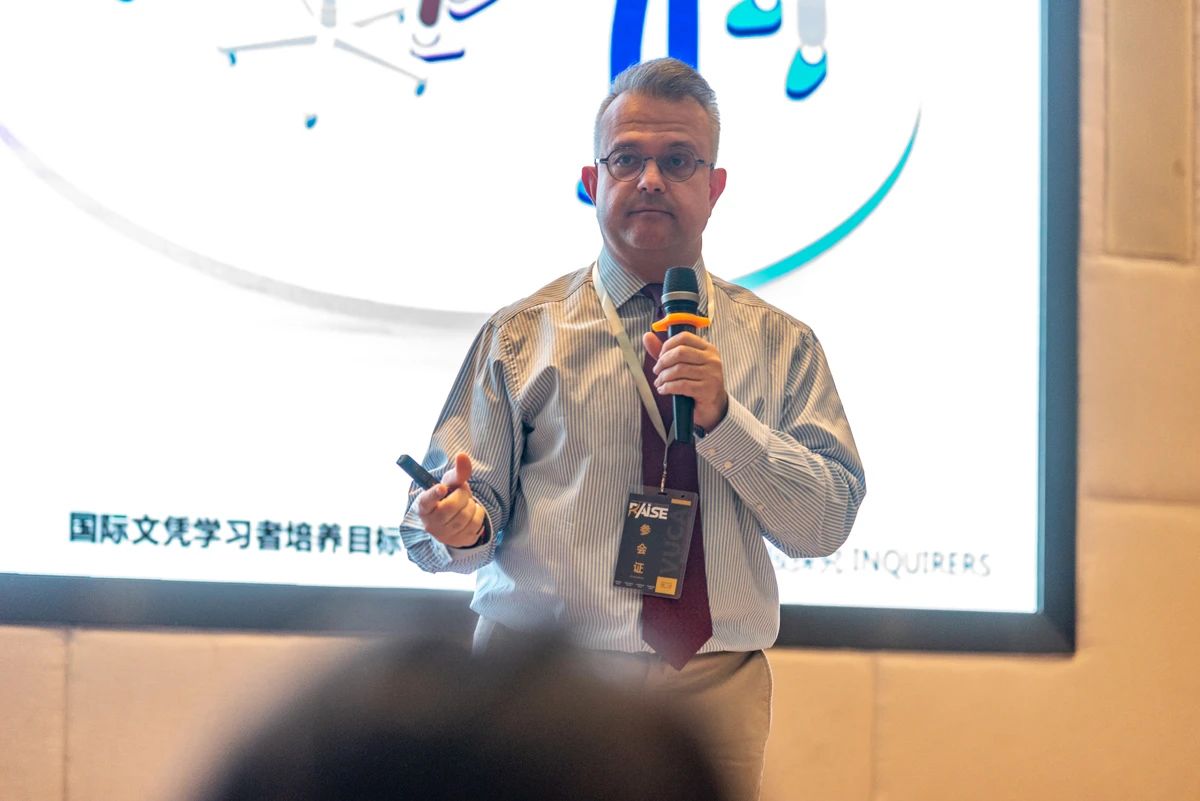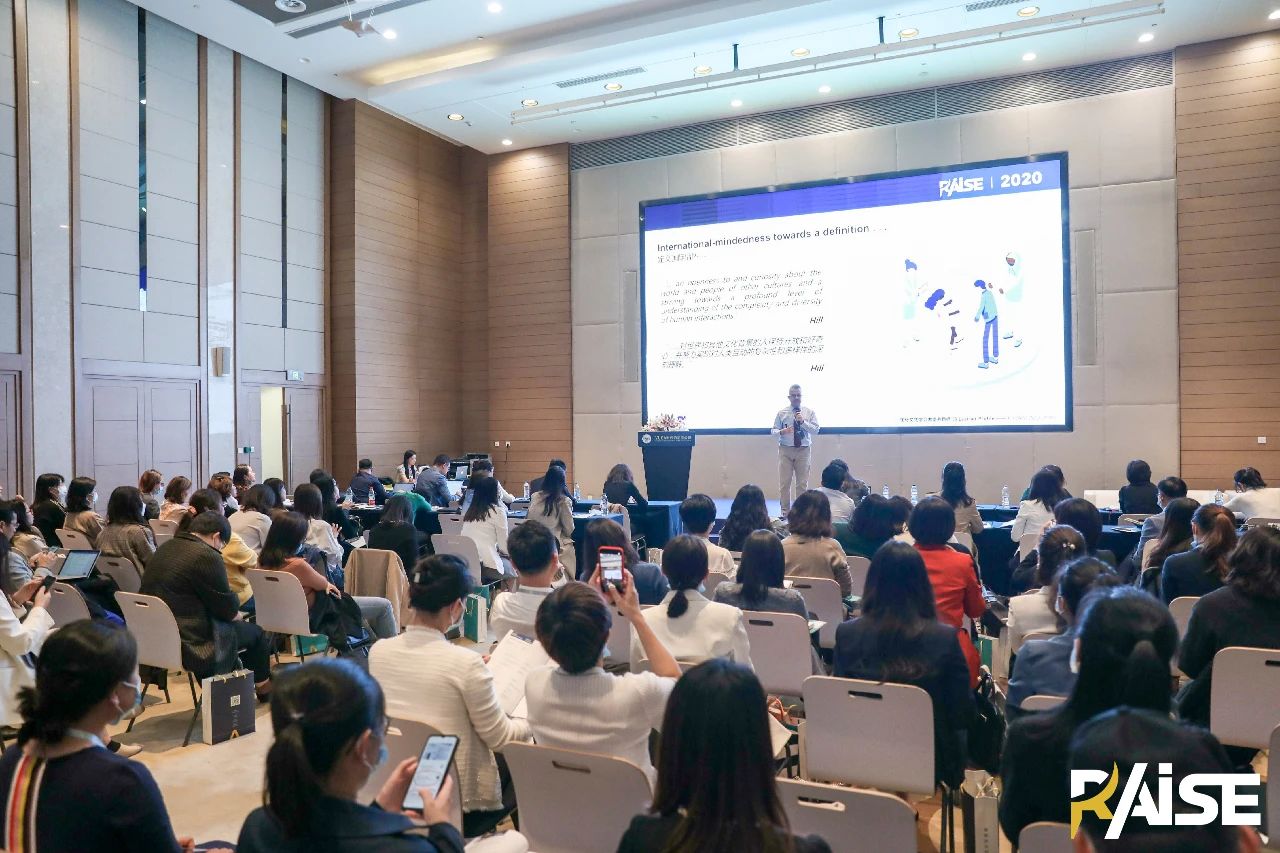As a high quality bilingual school, what kind of future talents do we want to cultivate?At the Conference of Asian International Schools in October 2020 , Lybs Principal Antony GERALIS was invited to speak and bring his perspective.

▲ LYBS Head of School: Antony GERALIS
Founded on tradition, grounded in progress. As an IB World School accredited by the International Baccalaureate Organization (IB), since changing its name to Shanghai Liaoyuan Bilingual School in 2016, our school has embarked on a transformative journey to integrate the IB PYP and MYP frameworks with in the Chinese National Curriculum (CNC).
For those familiar with the International Baccalaureate (IB), its objectives may be familiar. The goal of all IB programmes is to develop internationally minded individuals who share a common spirit based on the fundamental human values of love and responsibility for the planet, helping to create a better, more peaceful world.

▲ RAISE2020
With this goal in mind, it is important for students to incorporate a "global mindset" into their daily learning and life experiences. This means that we need to equip students, so that they develop the (intellectual) ability to learn, understand information and gain knowledge, the (intrapersonal) ability to be open to differences and change and adapt, as well as be (interpersonally) able to interact and communicate with others.
How do we help prepare students for the future? "By supporting them to develop disciplined, synthesizing, creating, respectful and ethical minds" said LYBS Head of School quoting Gardner at the "RAISE 2020".
"International mindedness" for a global mindset
“知者不惑,仁者不忧,勇者不惧” is the essence of LYBS Head of School’s speech in the sub-forum of "Cultivating International Talents" in the International Schools of Asia Conference. This quote is from the Analects of Confucius, and it is a reflection on education in 2021 under the current unique context. It is a quote that expresses the "international sentiment" of an IB educator, who has a deep understanding and immense respect and appreciation of other cultures and applies it to his own presentation in order to prove the point to be made.
The term "international mindedness" may seem abstract on the surface, but it is no less important and no less relevant to the mission of the IB and is fundamental to its educational philosophy; it is at the heart of the IB continuum of international education. Consider this question: How do you communicate smoothly with people of different cultures from around the world when you work for a corporation at home or abroad? This is precisely the problem that "global awareness" education needs to address.
"Internationally minded" students can collaborate harmoniously with counterparts from different parts of the world, learn from each other, be flexible and adapt as needed. This leads to the development of respect, empathy and compassion.
Looking at some of today's schools and quoting George Walker, the former head of International Baccalaureate, what they do is focus on what he called the three Fs - food, flags and festivals just to tick the boxes of what an “internationally minded” education should look like. "Now there's nothing wrong at all with learning about food, flags, festivals, or any other F you want to add. Learning about those is a great starting point but if we're serious about helping kids and ourselves to develop an [intercultural] and global mindset, then it needs to go beyond that."
"Global competence" to promote global thinking
If "international mindedness" helps students think, "global competence" teaches them the knowledge and skills theyneed to excel on the global stage. In the changes in education in recent years,we have noticed some future trends that are emerging and help shape students for the short or even the long-term future . . . the 22nd century whenit comes to education given that the 21st is "over".
Examples include "mastery of at leastone specific discipline, application of information from multiple sources,development of new ideas and posing unfamiliar questions, seeking to understand others and their similarities/differences, pondering the nature, needs and desires of society", according to Gardner.
Therefore, according to LYBS Head of School, "global competence" can be defined as the knowledge and skills people need to understand today's flat world and to integrate across disciplines, so that they can comprehend global events and create possibilities to address them. Global competencies are also the attitudinal and ethical dispositions that make it possible to interact peacefully, respectfully, and productively with fellow human beings from diverse geographies" quoting Reimers.
How will the paradigm of education change as we face the future?
Moving from learning a fixed curriculum in a classroom to a lifelong learning model.
Moving from a teaching model to a learning model.
Moving from learning with a fixed time, space, and access to a teacher to ubiquitous learning.
Moving from using technology for teaching to using technology for learning.
Moving from learning content to learning skills, [hence developing global competence].
——Howard Gardner
It was made evident by our Head of School that Shanghai LYBS aspires to develop inquiring, knowledgeable and caring young people who help to create a better and more peaceful world through intercultural understanding and respect and this is we LYBS is . . .
1.Founded on tradition
2.Grounded on progress
3.Focusing on skills development
4.Aiming at providing options
5.Offering holistic education
6.Fostering intercultural mindedness
7.Capitalizing on Chinese culture
8.Supporting sustainability
9.Promoting inclusion
10.Ensuring success

